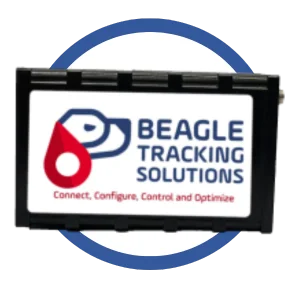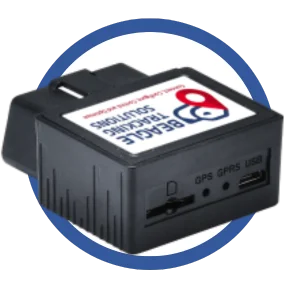A GPS tracker system uses satellite technology to keep track of where vehicles are at all times. This system makes better fleet management, route optimization, security assurance, and operational expense reduction possible. Its capabilities include geofencing, real-time tracking, monitoring of driver behavior, and analysis of fuel consumption. A strong tracking system is essential to optimizing operations, reducing expenses, and improving overall efficiency, whether you operate a small fleet of vehicles, a delivery service, or a logistics organization. A solution that has become rather popular is a GPS Vehicle Tracking System.
What is a GPS Vehicle Tracking System?
A GPS Vehicle Tracking System uses satellite technology to monitor and ascertain vehicles’ real-time location. The technology comprises two primary components: a GPS receiver integrated inside the vehicle and a software platform that visualizes the vehicle’s location on a map. The GPS device interacts with satellites to deliver precise location data, which is sent to a cloud-based platform for monitoring. These systems are used to manage fleets of cars, trucks, and other vehicles. They provide essential information about vehicle movement, behavior, and usage, allowing organizations to better manage resources, increase security, and maintain operational efficiency.
Benefits of GPS Vehicle Tracking Systems
Improved Fleet Efficiency
Global positioning systems (GPS) to monitor vehicles’ location, speeds, and performance in real-time greatly simplifies fleet management. Companies can use this data to reduce wasted time and fuel by directing drivers to the most efficient routes. Therefore, fleet managers can boost production and efficiency across the board.
Cost Savings
Organizations can optimize routes, monitor fuel consumption, and prevent unauthorized use to cut operational costs. By encouraging drivers to be more cautious on the road, GPS tracking helps reduce unnecessary fuel consumption, maintenance expenses, and accidents.
Enhanced Security
One of the best things about a GPS vehicle tracking device is its higher security. Fleet managers are quickly notified and can see where a vehicle is at all times if it is stolen or fails to follow the scheduled route. Furthermore, remote immobilization adds an extra layer of protection against theft.
Good Customer Service Support
GPS tracking allows businesses to deliver accurate ETAs and real-time customer updates, improving customer experience. Customers value fast and clear communication about their shipments or rides, whether from a delivery service or a transportation business.
Increased Accountability
GPS tracking devices enhance accountability by monitoring driver behavior and vehicle performance. Drivers are aware that their behavior is under monitoring, which promotes safer driving practices and reduces the probability of accidents. Moreover, fleet managers can detect inefficiencies or performance concerns in vehicles.
Compliance with Regulations
Many businesses are subject to regulations covering driver hours, safety, and vehicle maintenance. GPS tracking devices can help guarantee compliance by keeping reliable records of driver behavior, vehicle usage, and maintenance plans.
Decision Making
GPS tracking devices’ comprehensive reports and data empower fleet managers to make informed, data-driven decisions. The insights provided by GPS tracking data facilitate organizations in enhancing route planning, detecting malfunctioning vehicles, and monitoring fuel consumption for strategic improvements.
Core Functions of GPS Vehicle Tracking Systems
Real-Time Location Tracking
Real-time tracking is a GPS vehicle tracking system’s most precise and important part. Fleet managers can use a digital map to see exactly where each vehicle is, which helps them make quick choices and give customers accurate arrival times. Businesses can improve transportation times and routes by using real-time data.
Route Streamlining
GPS tracking systems suggest the most effective routes by monitoring vehicles’ paths. This function lowers fuel consumption, enhances delivery times, and helps prevent traffic congestion. Route optimization helps businesses guarantee timely delivery and cut fuel expenses.
Geofencing
Geofencing technology allows users to create virtual limits or zones around particular areas. The system sounds an alarm whenever a vehicle enters or exits these zones. With this functionality, vehicles can be restricted from staying within specific geographic regions.
Driver Activity Monitoring
GPS monitoring systems can also track driver behavior, including speed, acceleration, braking patterns, and idle time. This information is essential for increasing driver safety, lowering accident rates, and reducing vehicle wear and tear. Fleet management can also provide feedback to drivers, which encourages safer driving behaviors and lowers operational expenses.
Vehicle Maintenance Alerts
GPS tracking systems can issue alerts for scheduled vehicle maintenance—including tire rotations, oil changes, and other basic services. Monitoring vehicle maintenance helps companies avoid malfunctions, increase the service life of their vehicles, and save unexpected repair expenses.
Fuel Consumption Monitoring
GPS tracking systems may help monitor fuel usage by analyzing fuel consumption data and identifying discrepancies. Excessive fuel consumption may suggest inefficient driving practices or fuel theft. By monitoring fuel usage, businesses can enhance fuel efficiency and manage costs.
Remote Immobilization
Some GPS tracking systems enable fleet managers to immobilize a vehicle remotely in the case of theft or illegal usage. This function provides an extra degree of security by assisting in recovering stolen vehicles and preventing misuse.
Driver and Vehicle Reports
The GPS monitoring system’s comprehensive data can provide useful insights into vehicle performance, driver behavior, fuel usage, and other factors. These reports can monitor fleet performance, identify improvement opportunities, and make data-driven decisions.
Conclusion
Therefore, GPS vehicle tracking systems are game-changers for companies that want to revolutionize fleet management, security, and operational expenses. From real-time position tracking to route optimization, driver behavior monitoring, and vehicle maintenance, GPS tracking systems offer extensive information to simplify processes and guide decisions.
FAQs
What is a GPS Vehicle Tracking System?
A GPS Vehicle Tracking System uses satellite technology to track and monitor the real-time location of vehicles. It helps businesses optimize fleet management, improve security, and reduce operational costs by providing detailed insights into vehicle movement and driver behavior.
How does GPS tracking improve fleet efficiency?
GPS tracking optimizes routes by providing real-time location data, reducing fuel consumption, and enhancing delivery times. It also helps monitor driver behavior, promoting safer driving practices and minimizing operational expenses.
Can a GPS tracking system help with vehicle security?
Yes, GPS tracking systems offer enhanced security by providing real-time alerts if a vehicle is stolen or deviates from its scheduled route. Some systems also feature remote immobilization to prevent theft or unauthorized use.



